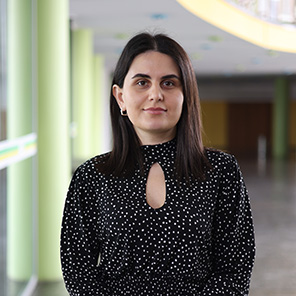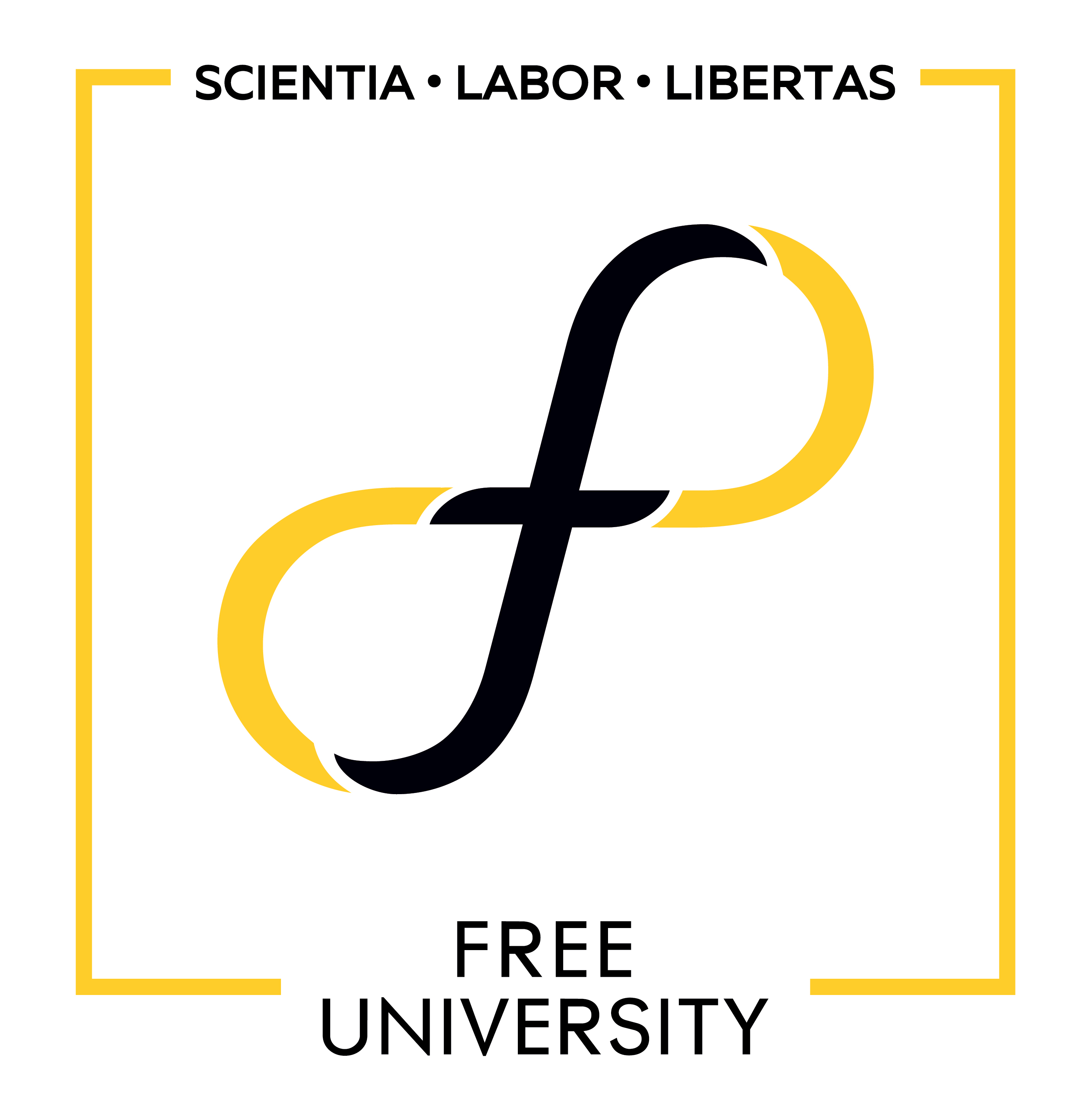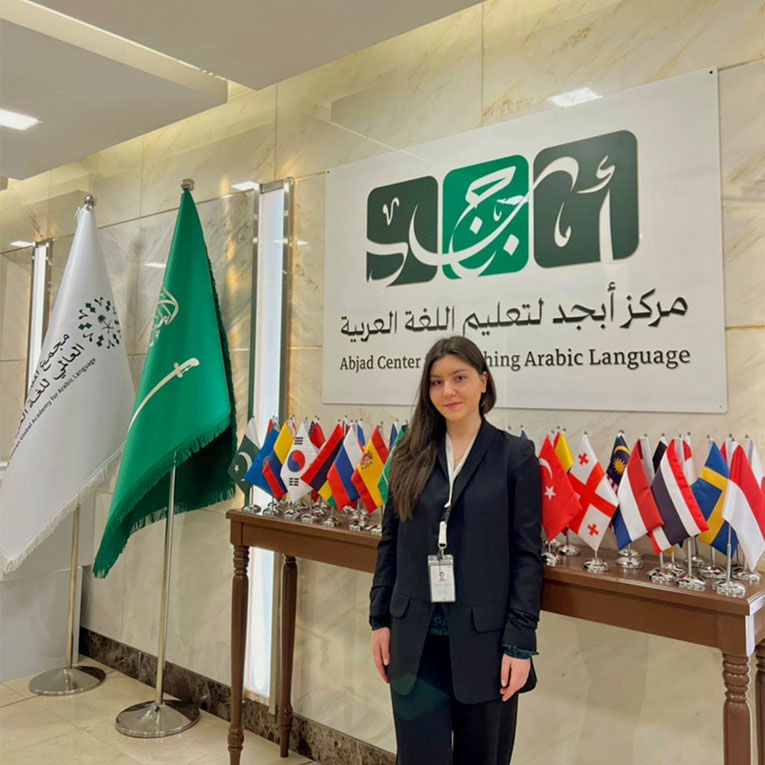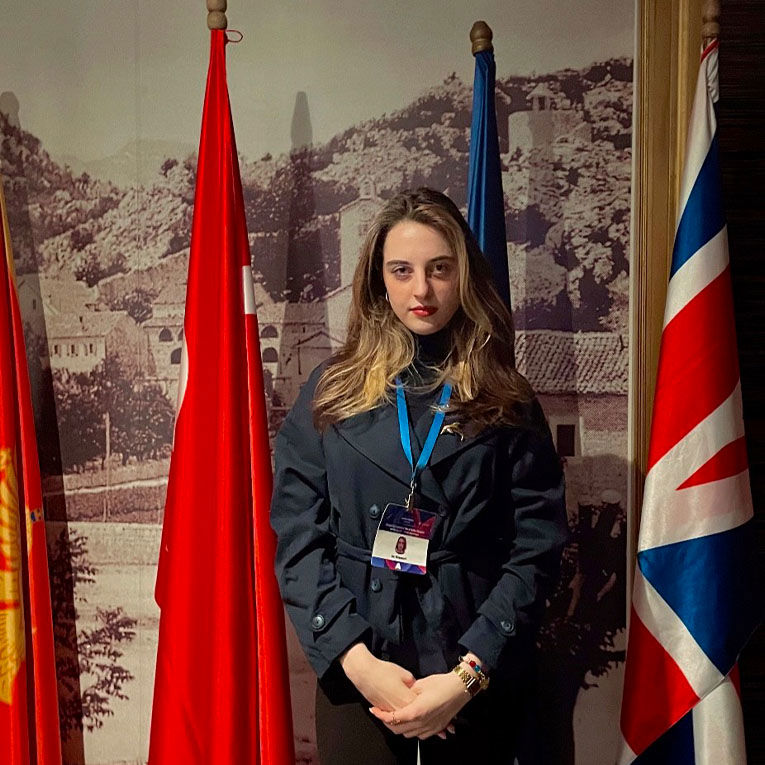SCHOOL OF INTERNATIONAL RELATIONS
Bachelor's Program in International Relations - Description
The objective of the Free University of Tbilisi Bachelor's Program in International Relations is to provide students with a comprehensive education in international relations, that aligns with modern requirements and to equip them with specialized knowledge of their chosen region: the Middle East, the Far East, or the West (Europe, USA). Furthermore, students develop analytical skills to comprehend contemporary political, economic, cultural and diplomatic processes globally.
The program offers three concentrations:
- International Relations with a concentration in Far East Studies (optional languages: Chinese, Japanese, Korean)
- International Relations with a concentration in Middle East Studies (optional languages: Arabic, Persian, Turkish)
- International Relations with a concentration in Euro-Atlantic Studies (optional languages: Spanish, French, German)
Upon successful completion of the 4-year program, the graduate is awarded the qualification - Bachelor of International Relations.
CURRICULUM
The curriculum for the Bachelor's Program in International Relations consists of 240 credits, allocated across the following modules:
- University General Education - each student enrolled in the university's bachelor's programs, in addition to specialized subjects, also takes general subjects, contributing to the elevation of general education and the expansion of their field of interests.
- Foundational Education in the Field of Study - this module covers essential foundational courses for studying international relations.
- Core Education in the Field of Study - consists of fundamental theoretical and practical courses necessary for the study of international relations.
- Concentration - the program offers three concentrations, from which students choose one: Far East Studies, Middle East Studies and Euro-Atlantic Studies.
- Language Module - the program provides students with the opportunity to study one of nine different foreign languages: Arabic, Persian, Turkish, Chinese, Japanese, Korean, German, French or Spanish.
- Practical Education - this component encompasses work experience within an organization. Working in an organization is a crucial aspect of students' training, allowing them to cultivate practical skills by applying the theoretical knowledge acquired during their education to real-world situations. This facilitates their adaptation to work environments, enables the application of competencies honed during their educational journey and fosters the development of new skills.
- Elective Courses - students have the flexibility to choose additional courses based on their interests. They also have the option to pursue an additional 15 credits of courses at no extra cost.
Code:
0360107 Copied!
Copied!
Cohort Size 80
| National exam | Weight | Student Places | Minimum Score |
|---|---|---|---|
| ქართული ენა და ლიტერატურა | 4 | - | - |
| უცხო ენა | 3 | - | - |
| Optional Exam | |||
| ან მათემატიკა | 5 | 8 | 70% |
| ან ისტორია | 5 | 54 | - |
| ან გეოგრაფია | 5 | 9 | 70% |
| ან სამოქალაქო განათლება | 5 | 9 | 70% |
Subjects
ქართული ენა და ლიტერატურა
Subject Weight
4Cohort Sizes
-Minimum Score
-უცხო ენა
Subject Weight
3Cohort Sizes
-Minimum Score
-ან მათემატიკა
Subject Weight
5Cohort Sizes
8Minimum Score
70%ან ისტორია
Subject Weight
5Cohort Sizes
54Minimum Score
-ან გეოგრაფია
Subject Weight
5Cohort Sizes
9Minimum Score
70%ან სამოქალაქო განათლება
Subject Weight
5Cohort Sizes
9Minimum Score
70%ABOUT THE SCHOOL OF INTERNATIONAL RELATIONS
The School of International Relations has a 30-year history of engagement in Georgian education and was previously known as the Institute of Asia and Africa. It was established in December 1991 and holds the distinction of being the first higher education institution in Georgia to offer instruction in Far Eastern languages. In 2008, through the leadership of Mr. Kakha Bendukidze, the Institute of Asia and Africa merged with the Free University of Tbilisi, along with ESM.
Initially, the program offered two concentrations: Middle East Studies and Far East Studies. In addition to the core subjects covered by the Bachelor's Program in International Relations, these concentrations encompassed the study of Oriental languages (Arabic, Persian, Turkish, Chinese, Japanese and Korean), regional history, religions, economics, politics and culture.
Market demands and communication with employers underscored the necessity of preparing specialists in the field of international relations with a focus on Western countries. Consequently, in 2013, a third concentration, Euro-Atlantic Studies, was integrated into the School of International Relations Bachelor's Program. This concentration provided entrants with courses in European languages and covered topics such as the US Political System, Political Systems of European Countries, EU Processes and Institutions and Euro-Atlantic Security.
After this transformation, the Institute of Asia and Africa underwent a name change to become the School of International Relations and was granted the status of a research institute. Presently, the School of International Relations offers an accredited Bachelor’s Program in International Relations.
The School of International Relations actively collaborates with numerous universities worldwide, including Tsukuba University, Carleton University, Seoul National University, the French Institute, Lanzhou University, among others. Students of the School of International Relations participate in various programs at universities and institutes such as Tsukuba University, Waseda University, Japanese International University, Ritsumeikan Asia Pacific University, Doshisha University (Japan), Lanzhou University, Zhengzhou University, Xiamen University, Qingdao University, Nanjing Pedagogical University (China), Doha Institute of Languages (Qatar), Cairo University Arabic Language Center (Egypt), Kuwait Arabic Language Institute (Kuwait), Chonbuk University, Seoul University (Korea), Free University of Berlin, Heinrich Heine University, Düsseldorf, Berlin International University (Germany) and more.
The School of International Relations has a longstanding record of successful operation, as evidenced by the accomplishments of its graduates, which includes:
- Continuing their studies to pursue Master's and PhD degrees at some of the world's leading universities, including the University of Missouri, Middlebury Institute of International Studies, the University of San Francisco, City University of London, the University of Nottingham, University of Glasgow, Dublin City University, Charles University, Free University of Berlin, College of Europe, University of Bordeaux, University of Rennes, University of Tartu, Universidad Popeu Fabra, Charles III University of Madrid, Shanghai University, Yonsei University, Son Goku University, Peking University, Kyoto University, Osaka University, University of Tsukuba, Waseda University and more.
- Securing employment in diverse fields, such as diplomatic missions abroad and foreign missions in Georgia, the public and non-governmental sectors, tourism, business and academia.
The interdisciplinary teaching approach at the School of International Relations empowers graduates to explore new fields. Examples include graduates who choose to further their studies in marketing, educational sciences, programming or business.
Within the School of International Relations, special emphasis is placed on language instruction. Building on the success achieved in this area, the Free University of Tbilisi has become a hub for organizing and conducting international language exams, including:
- Japanese Language - JLPT (Japanese Language Proficiency Test)
- Korean Language - TOPIK (Test of Proficiency in Korean)
- Chinese Language - HSK (Hanyu Shuiping Kaoshi - Chinese Proficiency Test), HSKK (HSK Speaking Test)
Dean
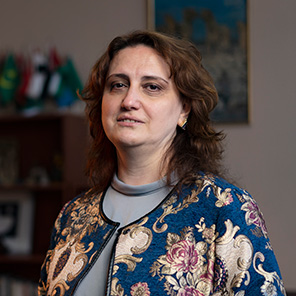
Associated Dean
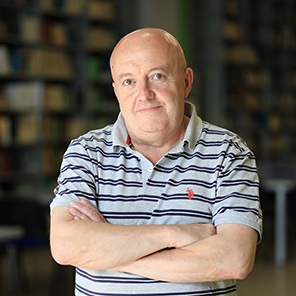
Coordinator
